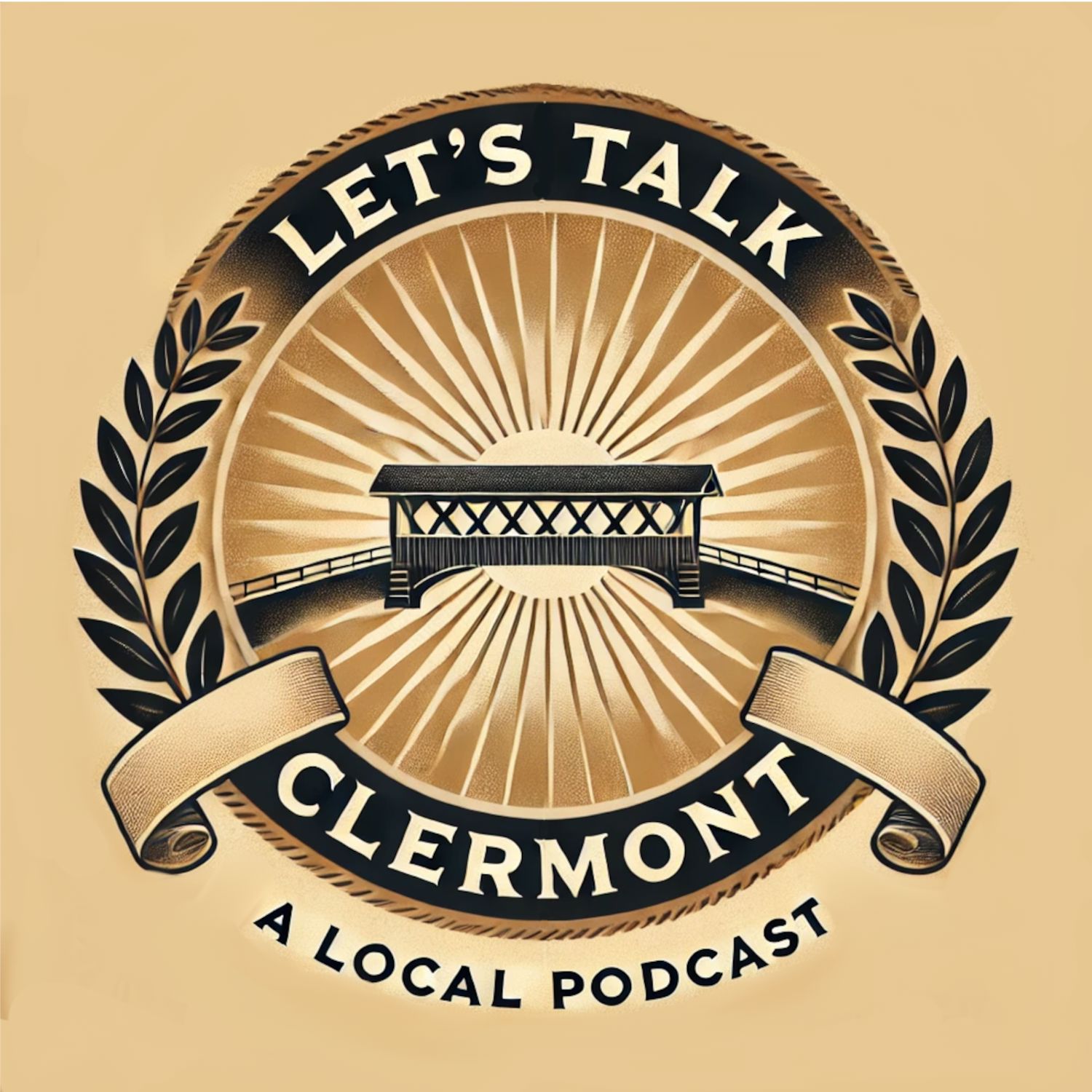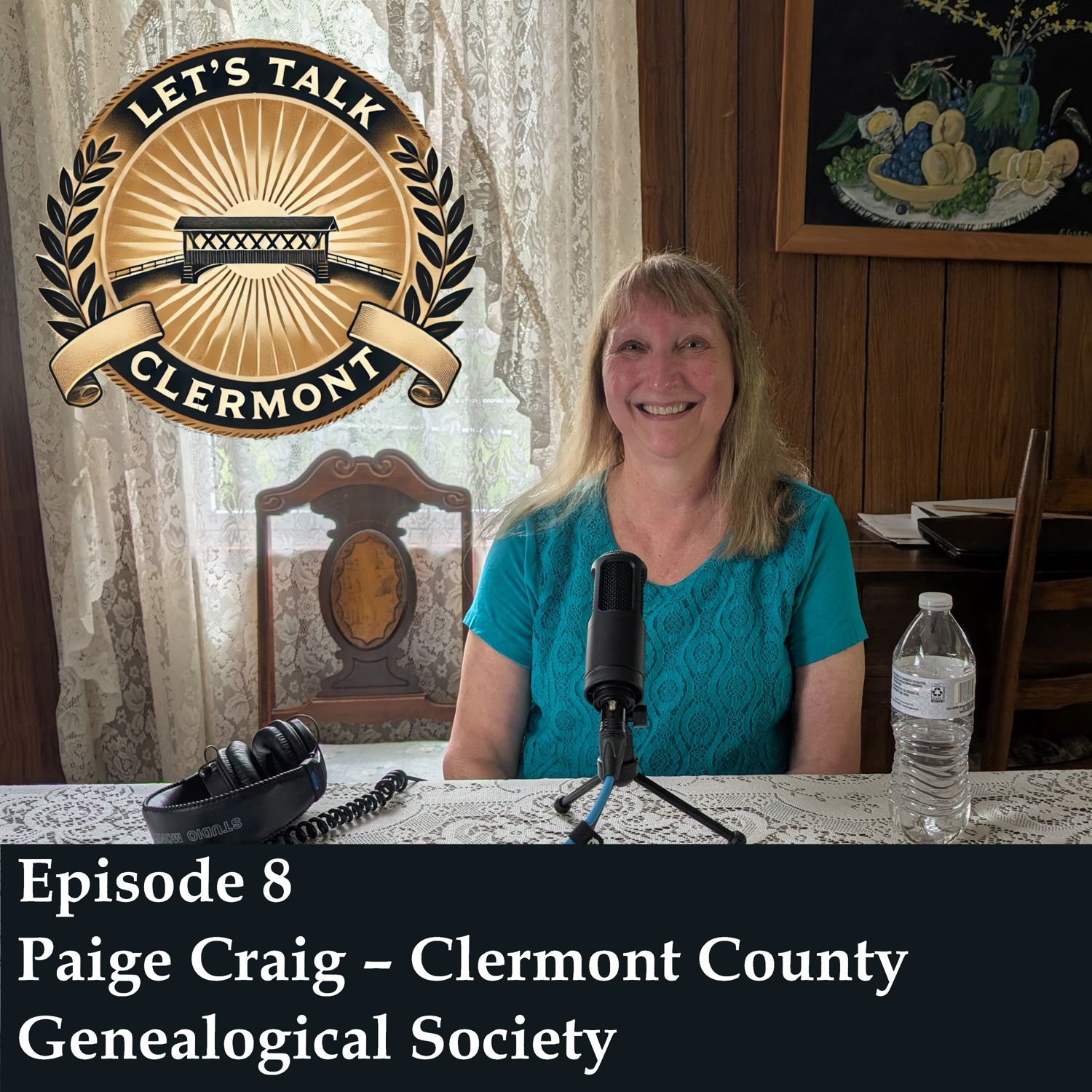Episode 8 of Let's Talk Clermont. We take a break from the news to welcome new listeners and talk about what the podcast is all about. We then sit down with Paige Craig, president of the Clermont County Genealogical Society, to talk about genealogy and how it connects us to local history. Stick around after the interview for a lineup of upcoming events and a unique take on giraffes.

Let's Talk Clermont
News and Views for Clermont County, Ohio
Listen in your favorite app:
Fountain